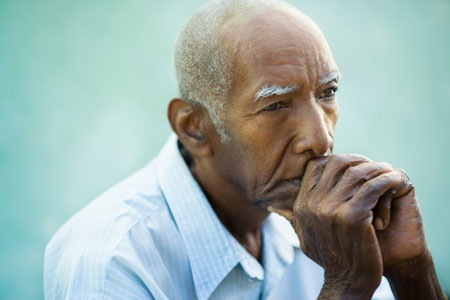22 Nov 2017
Alleviate Holiday Depression In The Disabled
For many people, depression is synonymous with the holidays. Having a disability or involvement with a disabled loved one can make this depression worse. At this time of year, there is an expectation that everyone will feel merry. That social pressure added to strained family matters and money issues mean holiday depression can quickly get out of hand.
Many disabled people have mild to moderate depression on a daily basis, just from dealing with the disability and the physical and emotional pressures that come with it. Holiday stress can make it much worse.
Alleviate Holiday Depression In The Disabled
Be Around People
Don’t isolate yourself. Make time to be around people that you love and who love you. Unfortunately, disabled people find that friendships change as their disability worsens. As such, disabled people are often very lonely. That feeling worsens over the holidays as they are home alone while everyone else is having fun. Make sure to be around people who enjoy your company and who don’t trigger your depression. Make plans in advance so everyone knows who they’ll see when for the holidays. If you’re alone for the holidays, reach out to others who may be lonely too. Spend time alone to be a little sad, then reward yourself and go have some fun with people. If you’re in a support group, keep going—it may be even more important during the holidays.
If you know someone with a disability, remember they often can feel like outsiders, particularly at the holiday season. Include them on outings or go to their place and have some holiday fun. Volunteer your time to help a disabled group. You will feel personally satisfied, and you’ll lift their moods tremendously.
Keep it Simple
Don’t overdo it on the decorating. A nice tree, some cute stockings and a few lights are festive and fun. Just accept that you can’t do everything. Decorate a little and then be done with it! If you need help cooking or decorating, just ask. It’s more fun as a group anyway! Have fun spending time with people, watch Christmas movies and bake cookies.
Keep your shopping simple, too. If navigating the malls with your disability is too hectic, ask a friend to go shopping. Even better, stay in your warm jammies, shop online, and have everything delivered to you. Many companies offer free or reduced shipping for the holidays.
Don’t Overindulge
Many overindulge during the holidays as a way to mask their depression. Keep your typical routine of eating and drinking and be sure to make time to rest and recharge your batteries. A great night’s sleep can work wonders for depression. Get your usual exercise as well—it will lift your spirits.
06 Nov 2017
4 Ways to Prevent Holiday Depression in Seniors
The holiday season can be stressful, especially for seniors. As we get older, families become busy with their daily lives and together time is often overlooked. In many cases, the holidays become a time of depression for seniors, who may have lost loved ones, suffer from chronic health issues, or are unable to travel to visit friends or family.
Fortunately, we can take steps to prevent holiday depression for seniors. With a little awareness and compassion, we can turn this time of year back into a cheerful memory for our elderly loved ones and better our lives as well. Caregivers in senior-care facilities can also play a big part of alleviating holiday depression in seniors.
4 Ways to Prevent Holiday Depression in Seniors
-
Look Out for Signs of Depression
The first step to preventing holiday depression in seniors is knowing what to look out for. While it’s natural to feel a little blue during the holidays, there is a big difference between temporary sadness and depression.
Be on the lookout for symptoms of depression, like change in appetite or sleeping patterns, fatigue or lack of interest in activities your loved one previously enjoyed. To help gauge their depression, use the Geriatric Depression Scale – a list of yes or no questions that can help you determine the level of depression your family member or tenant may be suffering from.
-
Plan Outings and Activities
In many cases, senior depression comes about by not having enough to do during the holidays. During a season that’s usually considered busy and cheerful, too much free time can cause seniors to feel as if they are missing out on the joy the season once brought them.
Spend some time with your family member or senior residents by planning holiday-centric activities. Drive through a light festival, make gingerbread houses or take them to complete some holiday shopping. Involve your other family members too, if they are able to join.
-
Take a Trip Down Memory Lane
If your senior loved one has recently undergone some life changes (the loss of a loved one or relocating to a care facility), they may need some perking up during the traditional season.
Encourage them to share stories from their youth about the holidays and ask them questions to keep them engaged. Look through old photo albums or home videos and share some memories of your own. Rekindling old memories can help seniors cope during this nostalgic season.
Make New Traditions
Many seniors experience sadness during the holidays due to lost traditions. In many cases, the people they may have once celebrated with are no longer here.
To help your loved one, offer trying a new tradition that everyone can enjoy, while still paying respects to those you may have lost. Building new memories will help depressed seniors find joy during what otherwise could have been a bleak season.
04 Jan 2016
Post-Holiday Depression: Signs and Symptoms
Now that the holidays are over, it’s time to get back into the daily routine of work and social life. For many of us, the season is a time spent with family and loved ones; many of whom are not visited at other times of the year. This is typically true when it comes to visiting elderly relatives; many families are unable to spend as much time with grandparents and great uncles as they’d like, which means that, for most of the year, these relatives are more isolated from their loved ones.
We have all heard the statistic that depression and suicide spikes right around the holiday season, but it turns out that this is entirely false. It makes sense; spending time with family and significant others usually doesn’t inspire people to take their own life, if for no other reason than the fact that you are typically spending your free time with others, rather than being alone. While it may be comforting to know that this “fact” is pure myth, it turns out that it’s just the timing that’s off. In fact, the weeks and months after the holidays are the time when depression and suicide run rampant, especially in elderly individuals. After spending time with loved ones, having to separate and go without seeing them, perhaps for months at a time, can be a devastating loss to some family members. If you’re concerned about your aging relatives, we’ll go over what to look for as signs of depression, and how you can help.
When it comes to identifying depression in older adults, there is a broad range of specific symptoms. However, instead of breaking down each particular sign, let’s instead talk about what is depression. Depression is defined as an intense feeling of sadness, hopelessness, and feelings of unimportance. When someone stops caring about their own well-being and the welfare of others, this can be a significant sign of depression. For the elderly, unfortunately, there are a lot of risk factors that can lead to depression. These include, but are not limited to: loss of a loved one (such as a spouse), worrying about death, being ill (especially when bedridden), being unable to engage in activities due to physical limitations, and, sometimes, being on certain medications can lead to depression. As you can see, there are a lot of risk factors that affect the elderly more so than other adults. It is for this reason that depression can be quite common among the aging population.
So what can you do to treat this condition? Typically, in cases of depression among teens and most adults, doctors will prescribe medication to help curb the effects. However, for many elderly patients, this may not be feasible, as most older adults are taking medicine for other conditions, and there may be adverse side effects to mixing them together. Fortunately, though, there are alternatives to medicine. According to experts, the best ways to combat depression in the elderly without medication are: exercise, healthy eating habits, interaction with friends and family on a regular basis, engaging in activities (however small), having and caring for a pet, and laughing. While it may seem that these are simple changes to one’s lifestyle, do not let this minimize the effect of depression, as if it is just a phase or slump that someone is going through. Sometimes, even after engaging in some of these remedies, people can remain depressed. If this is the case, then medication may be the only viable option. However, it is important that you would discuss anything like that with a medical professional to ascertain what exactly is available.
If you think your relative is depressed, or getting depressed, the best thing you can do is talk to them about it. If they are feeling useless or helpless, it can help to know that someone is there who cares about their well-being. Usually, these feelings come about when a person feels like they don’t matter to anyone, so showing them that they do can help reverse this negativity. Depression can be a serious illness, but it doesn’t have to be.







